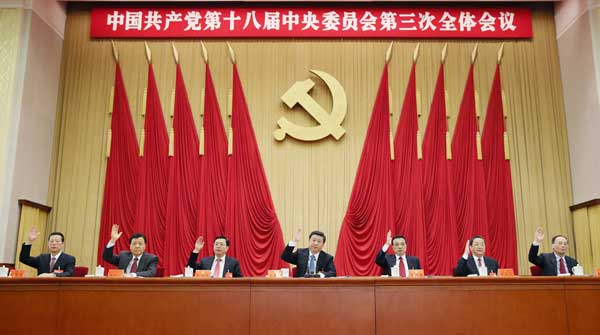Further reform will prompt measures to balance interests, release market potential and strengthen the rule of law
History and our experiences over the past more than 30 years show that the key to achieving national rejuvenation, prosperity and the well-being of the people is to rely on reform and the continuous release of reform dividends.
China's reform has entered the "deep water area" and it will be a profound, complicated and arduous process never before seen in history. Economic restructuring, social transformation, administrative transition are dependent on major breakthroughs in reforms, but these require making headway in adjusting major interest relations.
The Third Plenary Session of the 18th Central Committee of the Communist Party of China shows determination and courage to promote the necessary comprehensive reforms.

Giving priority to people's livelihoods and forming a reasonable interest structure are priorities, but these will involve major adjustments to interest relations and a major breakthrough in income distribution.
To solve the problem of the imbalance of interests, we should increase the incomes of urban and rural residents, especially low-income groups. The report of the 18th CPC National Congress set the goal that by 2020, the country's GDP and per capita annual income of urban and rural residents should be double 2010 levels.
This goal can be achieved through substantive breakthroughs in income distribution reform. Judging from international experience, the expansion of the middle-income group depends on the actual process of demographic urbanization. Urbanization will bring about rapid development of the service industry, resulting in quick expansion of the middle-income group. But this will require the integration of migrant workers into cities so that they become service consumers.